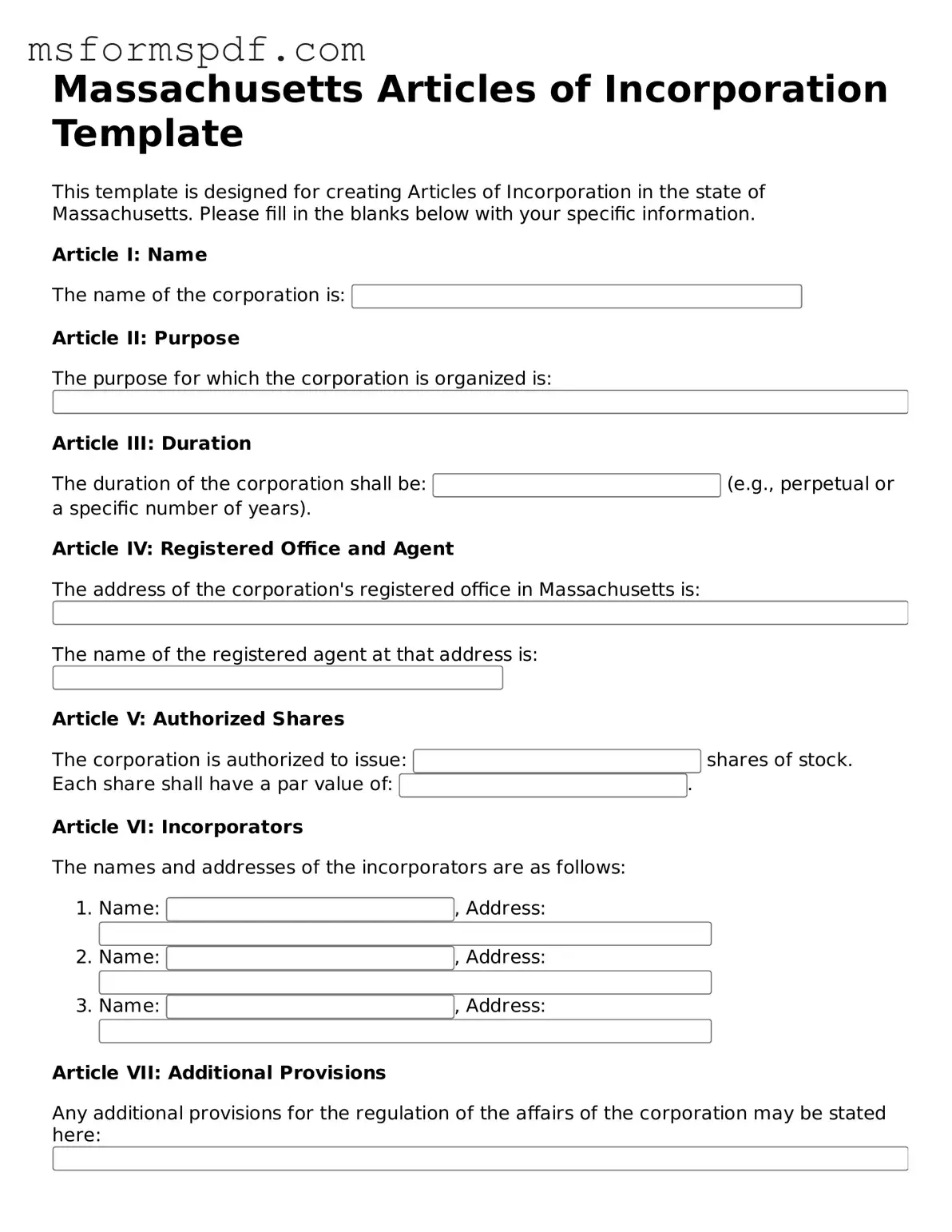Blank Massachusetts Articles of Incorporation Document
The Massachusetts Articles of Incorporation form is a crucial document used to establish a corporation in the state of Massachusetts. This form outlines essential details about the business, such as its name, purpose, and structure. Completing and filing this form is the first step toward legally forming a corporation and gaining the protections and benefits that come with it.
Launch Editor Now

Blank Massachusetts Articles of Incorporation Document
Launch Editor Now

Launch Editor Now
or
➤ Articles of Incorporation PDF Form
Just a moment — finish the form
Fill out Articles of Incorporation digitally — no scanning, no printing.